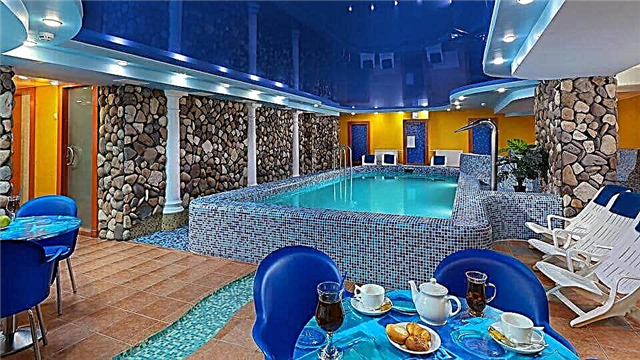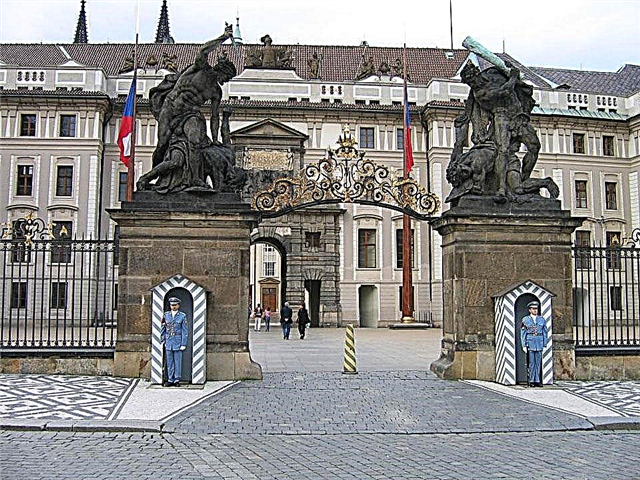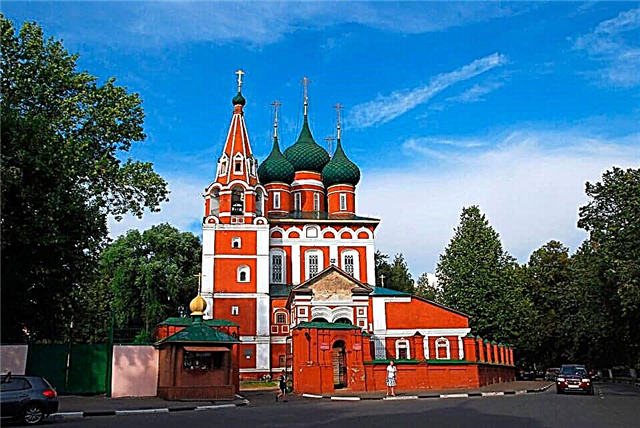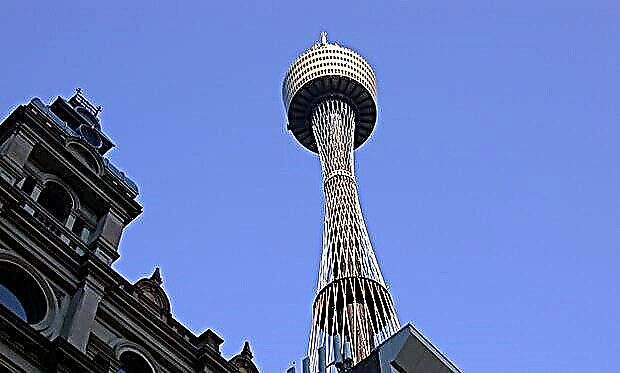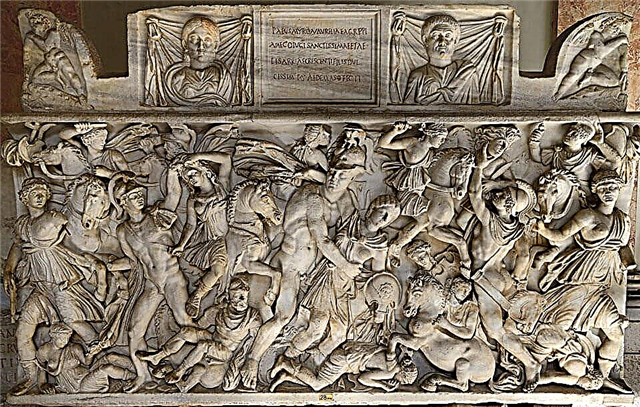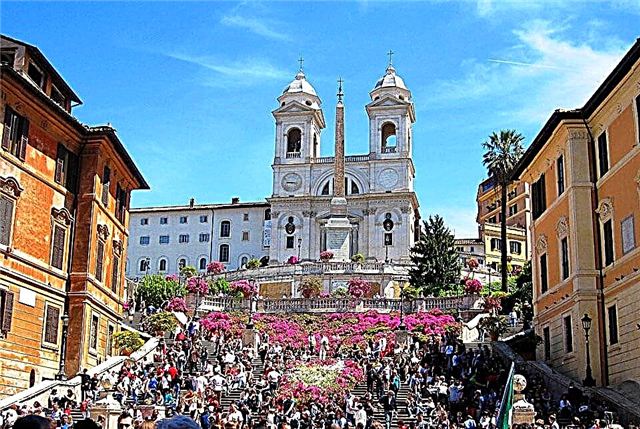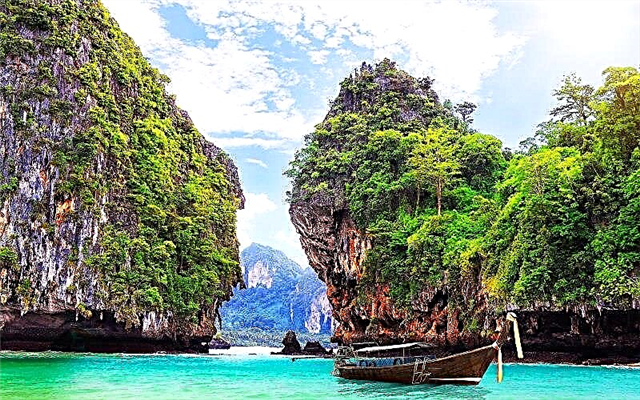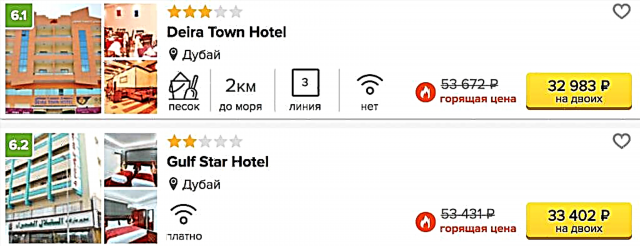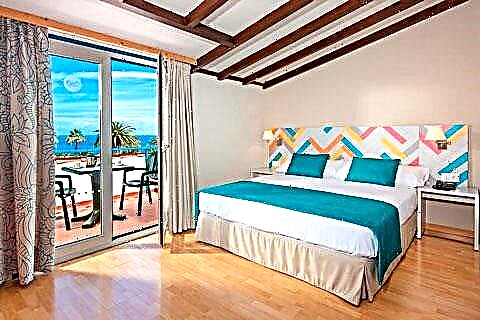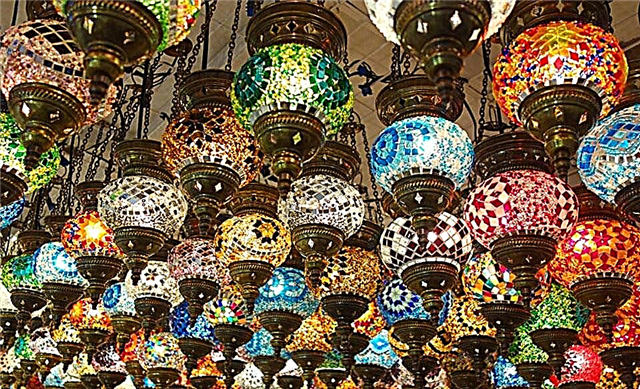The largest Turkish metropolis, whose ancient walls have been reflected in the blue waters of the Bosphorus for more than 27 centuries, is dear to the hearts of not only fans of historical and cultural attractions. The former Constantinople also attracts lovers of authentic shopping. Large department stores, tiny oriental shops and bustling bazaars - all retail outlets in the incomparable "city of contrasts" offer an impressive assortment of national souvenirs. Today we will talk about what to bring from Istanbul as a gift.
Tea

Fragrant ambrosia with a rich amber color is an integral part of the country's culture. They say here: "A conversation without tea is like heaven without the moon." Although the drink appeared in the country about 5,000 years ago, plantations were planted in the Ottoman Empire only in 1917. The favorable climate did its job: the tea industry developed successfully, and 30 years later, the first factory was opened in the Rize province, producing 60 tons of products daily.
Real tea for Turks is a strong, bitter drink. Locals never change the true taste, because milk or honey added to a cup will not let you fully experience the delightful aroma and delicate taste of the tea leaf. Powders fragrant with apple, pomegranate, hibiscus or lemon, towering in multicolored scattering on the counters with sweets, have nothing to do with real Turkish tea. Such drinks are nothing more than a chemical fizzy. There is nothing in its composition that resembles natural ingredients.
Tea accessories

Having fallen in love with the national Turkish drink, many fill their suitcases with the coveted packages of tea leaves. However, unlucky tourists will be disappointed: the taste of tea brewed in the usual way does not in any way resemble the divine ambrosia from the homeland of the Janissaries. In order not to get into trouble, bring a two-tiered teapot "chaydanlyk", the principle of which is similar to the functioning of a Russian samovar.
Tea drinking is never complete without armuds. A feature of these graceful vessels is the presence of a heavy bottom and a "waist" - a visible narrowing in the center. Such a pear-shaped shape was not invented by chance - in the expanded upper part, the liquid cools faster, which negates the possibility of getting burned. The standard volume of an armud (or, as the Turks call it, a "mess") is 100 ml.
Most often, a tea glass is made of glass, allowing you to admire the beauty of the fragrant drink. When receiving guests, Turkish hostesses put on the table armuds made of porcelain or crystal, as well as products decorated with overglaze painting, embossed decor or patterns made of gold and silver.
Coffee

On the territory of the Ottoman Empire, they started talking about coffee in the 16th century, when the beylerbey of Yemen, Ozdemir Pasha, treated Suleiman the Magnificent with an aromatic drink. The Sultan liked the invigorating nectar so much that he introduced the position of chief coffee maker at the court. The divine potion quickly won popular love. Until the end of the 19th century, only raw green grains were sold in the country.
In 1871, the situation changed. For the first time, the owner of the Kurukahveji coffee shop Mehmet Efendi offered customers finely ground roasted beans. Soon, queues began to line up at the store, and in the 30s of the XX century, a new brand Mehmet Efendi appeared on the world market. Today the brand is represented by several lines of grain and ground coffee, each type of which is a blend of 3-7 different varieties.
We recommend buying products of the famous brand in the Kurukahveci Mehmet Efendi brand stores. For 150 years, little has changed here. The beans are manually roasted and ground in huge coffee grinders in full view of numerous visitors. The price of a fragrant powder (500 g) packed in a paper bag is 27.5 lire.
Cezva

In order to brew real Turkish coffee, it is not enough just to buy Mehmet Efendi products. To prepare the "right" drink, you need a cezva (Turk) - a conical container tapering upward with a wide bottom and a long handle. The best vessels are made of copper, a metal with high electrical and thermal conductivity. In such a dish, the liquid heats up evenly, the ground grains have time to give off their rich aroma and rich taste.
Turkish coffee is a capricious drink, its preparation requires certain skills. Warm up the bottom of the cezve. Then pour 60 ml of water (filtered or bottled) into the vessel and add two teaspoons of ground coffee. Immerse the Turk in hot sand, for lack of it, put it on the stove, setting a low power. Remove the container from the heat when the foam rises to the edges, leaving a small speck in the center. Don't let it boil! Pour the finished coffee into a warmed cup. Do not start tasting immediately - let the drink brew for 2-3 minutes, during this time the thick will have time to settle to the bottom.
Eastern sweets

National Turkish desserts are a gift that sweet-tooth friends will be delighted with. Delicious treats are divided into three groups:
- Soft candies: Turkish delight, dzhezerie, nougat, sherbet, djevizli, sujuk. All this splendor is prepared from natural juice, starch and syrup. As fillers - nuts, candied fruits and dried fruits.
- Flour desserts: revani, kunefe, kadaif, havuch dilimi, tulumba, shaker-kurek, baklava. The base of these honeyed cakes is dough (filo, shortbread or yeast).
- Halva. A solid and moderately crumbly delicacy is prepared from sugar syrup, nut butter or semolina. Most often, on store shelves, you can find sesame (tahini) variety of halva.
For chocolate lovers, we advise you to head to Istiklâl Caddesi Street, where Meşhur Beyoğlu Çikolatacısı store is located at No. 69. You will recognize the tiny inconspicuous shop one by one from those who want to buy fragrant tiles and sweets wrapped in silver paper. Since 1952, chocolate has been produced here, which is not inferior in quality to French and Belgian counterparts.
Honey and jam

The country of fragrant flowers, endless cotton fields and a mild climate could not help but become one of the four world leaders in the production of honey. The “amber gold” used in cooking, medicine and cosmetology is revered as a sacred product. The Prophet Muhammad himself urged believers to be attentive to two medicines: the Koran and honey.
Only in Turkey you can taste the unique honeydew (pine) honey. The exotic product is harvested in the vicinity of the city of Marmaris, surrounded by coniferous forests. This aromatic golden brown delicacy is known for its beneficial properties: it stimulates metabolic processes, promotes the elimination of toxins, improves liver function, prevents anemia and increases the tone of the body.
Another healthy sweetness is rose petal jam. In its preparation, only the buds of young plants are used. A fragrant and surprisingly delicate dessert in the country is called "gulbesheker", which translates as "beautiful, like rose jam".
Olive oil

Olive oil, which locals call "breast milk for adults", ranks first in the charts of the most popular products. It is used not only in salads - rich in vitamins and omega-acids, "liquid gold" is used for cooking, used in skin and hair care.
Several dozen varieties of olive oil are produced in the country. According to the consumer rating, the best products are produced by Kristal Naturel Sızma. The brand's oil, which has been leading its history since 1945, is characterized by low acidity (less than 0.8%). The cost of a 1 liter bottle is about 10 liras.
When choosing a product in a supermarket, pay attention to the color: high-quality olive oil should have a light greenish tone.A gray tint indicates that the product is made from overripe fruits. Also, look for the label “soğuk sıkım” (extra virgen) on the packaging. This label ensures that you are buying Extra Virgin Olives made from handpicked olives.
Cheese

Even experienced gourmets do not hide their surprise at the huge selection of local cheese. There are over 150 varieties in the country. Some of them are able to compete seriously with the Italian Parmesan or the Dutch Maasdam. The pride of Turkish cheese makers is the salty and hard Tulum Peyniri. The product, which has been proven for centuries, is boiled from the milk of sheep or goats, and then kept in animal skins for 3–6 months.
Another star of the national cuisine is the hard Kashar peyniri, which has a rich yellow color. It takes up to 10 kg of sheep's or cow's milk to produce a kilogram head of this light (22% fat) cheese. The product is served for breakfast, added to pasta and used in traditional baked goods.
There are also blue cheeses. The fragrant Küflü peyniri (Küflü peyniri) is made from Akkaraman sheep and sent to mature in caves for four months. Turkish Greetings to German Dor Blue is distinguished by its bright taste and is the perfect match for white wine and spirits.
Spices

For skillful housewives who have chosen cooking as their hobby, bring fragrant spices. You should not buy the usual mint, caraway seeds, cloves or cinnamon - you will find them on the shelves of domestic stores. Another thing is rare species:
- Isot. Red pepper variety. The charcoal black color is achieved through special processing of the raw materials. Burning "smoked" taste harmoniously complements meat dishes.
- Nigella (nigella). A sweet spice with hints of strawberry, nutmeg and oregano in its aroma. This oriental darling goes well with all dishes, from appetizers to desserts.
- Sumac. An astringent burgundy spice that gives food a sour taste, light ruby hue and citrus aroma. It will make a perfect company with meat, fish, hummus, soup and vegetable stew.
- Baharat. A universal seasoning consisting of 5–20 types of spices. An obligatory ingredient is black pepper. The taste is sweetish, without bitterness and pronounced pungency. The smell is warm, with bright smoky tints.
For spices, head to the Egyptian Bazaar (Mısır Çarşısı) located in the historic Eminönü district. 80 shops are located under the domed lead roof. In addition to spices, tea, nuts, sweets, dried fruits and natural cosmetics, they offer a good selection of medicinal herbs.
Cancers

Representatives of the stronger sex, who know a lot about strong alcohol, can bring cancer. Many people call this aromatic drink aniseed vodka, which is not true. Strictly speaking, the national Turkish elixir has little in common with the traditional Russian "little white". According to the production technology, it rather refers to brandy or savory liqueurs.
The alcohol base of crayfish is grape, date or fig distillates. The grape cake or raw fruit is distilled in copper vats. Then the resulting mass is insisted on the seeds or anise root, distilled a second time and left to "rest" in oak barrels for a couple of months. As a result, a crystal clear liquid with a strength of 45-50 ° is born.
The drink is served to the table in tall narrow glasses. It is not recommended to drink raki in its pure form - inexperienced tasters will find it scorching. In order for the insidious potion to turn into wonderful nectar, it is diluted with water in a ratio of 1: 3. The contents of the glass become cloudy, acquiring a milky white color. For this reason, locals often refer to crayfish as "lion's milk".
Pomegranate wine

Pomegranate wine is another drink in the treasury of fans of exotic alcohol. Dense sweet ragweed with a strength of 8–12 ° has a dark amber color with golden maroon or deep red tints. The palate is composed of the juiciness of pomegranate juice, light acidity and a pleasant nutty aftertaste. The best representative of the glorious family of natural Turkish wines is considered to be the products of the KUTMAN company.
A sweet alcoholic drink will not only decorate the table and give a good mood. Moderate consumption of wine, which contains the powerful antioxidant punicalagin, will reduce the likelihood of developing cardiovascular disease. In addition, the composition of the noble nectar contains folic and linoleic acids, which can activate blood circulation and protect body cells from the effects of viruses and pathogenic bacteria.
Pomegranate wine is served at the end of the meal. Before drinking, the drink is cooled to 12-14 ° C. Small tulip-shaped port glasses or Madera glasses are suitable for tasting. Fruits, ice cream, cakes, strudel, croissants will help you to fully appreciate the taste of a restrained tart elixir. Those who avoid sweets choose nuts, olives, and blue cheeses as a snack.
Nazar bonjuk

Wherever you go, you will be haunted by it - a round white and blue disc, on which an eye pattern is applied. This is a popular in the East amulet against envy and evil thoughts, the name of which, Nazar Bondjuk, is translated from Arabic as "a bead from the evil eye." They decorate rooms with it, display it in shop windows, attach it to the clothes and diapers of newborns, wear it as jewelry and give it to loved ones.
Nazar Bondjuk (also called "The Eye of Fatima") has a long history. Amulets resembling an open human eye existed in ancient Egypt. But even today people believe in the magical power of the talisman. In Turkey, they believe that he removes the evil eye and damage from his master, gives mutual love and financial well-being.
Nazar Boncuğu is not only a traditional amulet, but also the most popular Turkish souvenir. From small beads and key rings to bracelets, necklaces and patterned wall pendants, evil eye talismans are sold wherever tourists are. The most popular models are made of blown glass; the cost of such amulets varies from $ 1 to $ 10. The price of the "Eye of Fatima", set in a gold frame, starts at $ 15.
Figures and postcards depicting cats

The best souvenir for avid cat lovers will be a cute little thing depicting the four-legged object of their passion. Magnets, pictures, key rings, funny plates, handbags and animal figurines are presented here in great abundance. And it is not surprising, because the largest metropolis in Turkey is known as one of the world's feline capitals.
In the East, cats have always been treated with deep respect. In Islam, graceful creatures are revered as sacred animals, allowing them to be inside the mosques. True Muslims cherish the memory of the snow-white Muezza - Muhammad's beloved pet, who, according to the Koran, saved the prophet from the bite of a poisonous snake. Istanbul cats are full-fledged city dwellers. They are everywhere: in poor neighborhoods and in squares shining with neon lights, next to shop windows and at the doors of museums. The four-legged do not know the lack of food. The townspeople constantly feed their favorites, leave bowls of water on the streets and build dwellings from cardboard boxes. One of the furry creatures - the homeless darling Tombili - was even immortalized in bronze.
Iznik ceramics

Located 140 km from the city is the city founded in 316 BC. the city of Iznik. Here, in the workshops on the shore of the lake of the same name, at the end of the 15th century, they began to produce elegant ceramic dishes, vases, jugs, as well as marvelous tiles, which still adorn the Blue Mosque and the harem rooms of the Topkapi Palace. Incessant wars and economic decline of the 17th – 18th centuries. led to the termination of the production of ceramics.
Ceramic masterpieces from Iznik that have survived for centuries are characterized by strength, luster, heat resistance and magnificently elegant painting. Favorite ornament elements are birds of paradise, intricately intertwined stems, plant leaves and a tulip - the sacred flower of the Ottoman dynasty and a symbol of modern Turkey.
Authentic Iznik ceramics belong to the category of cultural values of the country. However, replicas of brightly painted plates are sold in huge quantities in bazaars. When choosing a souvenir, pay attention to its quality - there should be no cracks or chips on the glaze.
National costumes

If your acquaintances are dreaming about the heroes of the "Magnificent Age" series, bring them traditional clothes as a gift. The Turkish national costume was formed in the middle of the 6th century. The robes were made from light natural fabrics: linen, silk or cotton.
The basis of women's vestments is entari - a long dress of bright colors. Shalwar is often worn under it - thin wide trousers, wide at the waist and tapering downwards. The men's suit is more restrained. It is dominated by green, blue and black shades. Integral elements are a striped or white kais shirt and a swing vest worn over it, belted with a sash.
A complete set of parts of a national costume is not a cheap pleasure, its price in the markets rarely drops below $ 80. If your budget is tight and you want to surprise your friends with an exotic souvenir, take a look at individual pieces of traditional clothing. Tassel-decorated red fez cost $ 5-10, multi-colored Yemeni shoes with upward long toes - about $ 20.
Dervish figurine

To the quiet, viscous sounds of a flute and a drum, five dancers whirl detachedly and smoothly in a mystical flight. Their eyes are closed, their heads in high kula hats are bowed, their snow-white long skirts rise in a swaying dome. In silent prayer, the right hand is extended to the sky, palm up, and the left, palm down. Those who have seen the mysterious movements of the dervishes at least once in their lives will never forget them.
An amazing dance is not just an exciting show. Continuous rotation is an appeal to God, a method of prayer, created in the 13th century by the Sufi order of Melvevi. His followers, the dervish monarchs, who preached the rejection of worldly goods and their own "ego", achieved spiritual perfection through silent contemplation and meditative whirling.
The ritual of the Mevleri Order can be seen not only in the city of Konya, where this hypnotizing dance was born. Every Sunday at 17:00 an unforgettable show starts at the Galata Mevlevihanesi Museum. The performance includes prayer and sema ceremony. If you have fallen under the spell of the wrapping action, buy a souvenir statuette depicting a spinning dervish as a keepsake.
Mosaic lamps

Pendant lamps of various shapes and sizes produce the most vivid impressions for tourists. The art of making iridescent lamps, evoking the splendid palaces and fairy tales of Scheherazade, originated in Anatolia about 6,000 years ago. Craftsmen assembled shimmering plafonds from hundreds of pieces of multicolored glass, inserting their creations into a metal frame of filigree work.
Modern technologies have contributed to the manufacture of magic lanterns. Today, the mysterious dim light is emitted not by candles, but by electric bulbs. However, this innovation does not prevent multicolored lamps from creating a mysterious atmosphere of the East in the house, transferring it to the enchanting "Magnificent Age".
When buying a mosaic lamp, make sure that the metal parts are made of brass or copper. Plastic speaks of import from China or mass production. Small inaccuracies in the decoration of the plafond are not a sign of a lack of quality. A slight inconsistency of the glass pieces indicates that the product was made by hand.
Titanic city taksim
Just 5 minutes walk from Taksim Square
394 Reviews
based on Very good 8.3

Opera Hotel Bosphorus
Rooftop pool and restaurant
based on Very good 7.8

Swissotel The Bosphorus Istanbul
With stunning views of the Bosphorus
922 reviews
based on Very good 9.0

Hookah

Hookahs, or as they are called in Turkey "nargile", owned the hearts of the subjects of the Ottoman Empire since the 17th century. It was considered a good form to offer a guest to enjoy the fragrant smoke in oriental houses; refusal was perceived as a mortal offense. In the 19th century, cigars appeared and the demand for narghil began to decline. Interest in the exotic smoking vessel reappeared only after 1990.
A real nargile is not only a smoking device, but also an interior decoration. Hookahs of various colors and sizes are presented in the markets. But be careful when choosing a souvenir at the bazaar - the risk of purchasing a product labeled "Made in Taiwan" is too high. You can't go wrong if you look at the quality products under the Elmas Nargile, El Nefes and Tekdemir brands. The price starts at $ 30.
A good hookah needs the right tobacco. Well-known brands - Adalya, Tanya, Al Saha, Serbetli, Ayisigi - present about 100 variations of aromatic products to the buyers' judgment. The classic and most purchased variety is apple, it has a high smokiness, good taste and the ability to mix with tobaccos from other manufacturers.
Clothing and accessories made of leather and fur

Shopping is rarely complete without visiting stores, the range of which is replete with leather and fur products. The products of Turkish brands have no competitors in terms of the ratio between price and quality. Thirteen industrial zones are engaged in skinning. The country produces about 75% of the world's fur velor and suede.
If you set out to buy a quality product that will last for many years, go to Derimod, Yıldız Deri, Revani, Punto, Deri Sarayi stores. They are located in the "kingdom of fur and leather" - the Zeytinburnu region. Here you will find products for every taste and wallet: from a modest leather vest to a luxurious chinchilla fur coat. Didn't the size fit or didn't you like the style? No problem! Local tailors will sew your dream thing in a couple of days and deliver it to your hotel free of charge.
Do not be discouraged if the initial cost of the model you like seems overpriced to you. Sellers are masters of commercial negotiations. Bargain actively, keeping in mind a smile and a friendly attitude. This will help reduce the starting price by 35-65%.
Carpets

They say that a real hostess will never give up three things: tea in the cupboard, feta cheese in the refrigerator and carpet on the floor. If the opinion of oriental women is close to you, include a traditional woven product in your shopping list. Local artisans make their patterned creations from viscose, silk or wool, using only natural dyes in their work. Regardless of the material, Turkish carpets are highly durable and dense.
Selling carpets always turns into mini-shows. It is difficult to resist buying when highly skilled sellers spin the product in the air with fantastic speed and then scatter it on the floor, creating incredible patterns. Each woven masterpiece has an original ornament. Depending on the density, material, size and production method, the cost of quality products ranges from $ 80 to $ 5,000.
Important! If you are looking to buy a handmade antique rug, get a certificate from the store that shows the age of the item. Please be aware that it is prohibited to export products over 100 years old without special permission from the authorities.
Gold jewelry

Gold has been loved in the country since time immemorial. The beauty connoisseur Suleiman the Magnificent personally made graceful bracelets, necklaces and pendants decorated with an intricate oriental pattern for his beloved wife Roksolana. And today, products made of noble metal are considered the best present.The so-called "republican gold" - coins of various weights, which can be bought and then sold in jewelry stores, are always presented at weddings.
The main advantage of Turkish jewelry made of precious metal is their democratic cost. The fact is that local jewelers rarely use gold of the highest (24 ct) standard in their work. To reduce the price, craftsmen use alloys with silver or copper in the manufacture of products.
There are no number of jewelery points. However, you should not buy jewelry at the bazaar - sometimes, under the guise of gold, unscrupulous sellers offer tombak - an alloy of copper and zinc. It is almost impossible to distinguish such a fake from real metal. Don't be fooled by pleasant market prices. For certified goods, go to ZenDiamond, Pink Gold Store, Storks, Altınbaş, Cetaş.
Oil based perfume

Walking the streets of the Sultanahmet district or looking at the colorful stalls of the Grand Bazaar, you will surely see small shops labeled Parfüm. Inside, on numerous shelves, dozens of glass bottles are crowded, which contain a fragrant liquid created on the basis of essential and base oils.
The main feature of oily perfumes is the absence of alcohol in the composition, which makes them incredibly persistent. One drop on the wrist - and an intoxicating train will accompany its mistress all day long. Interestingly, the intensity of the perfume is fully revealed with movement and an increase in body temperature. At rest and in cold rooms, the concentration of odor decreases.
You should not buy such products as a gift for admirers of light fresh smells - the oily perfume has an enveloping thick aroma that carries over to the days of languid Sultan's concubines and fragrant palace incense burners. The composition of such perfumes contains rich oriental notes of sandalwood, agarwood, saffron, tuberose, vanilla, musk, orchid, myrtle and amber.
Cosmetics

Even if your dressing table is filled with different-sized jars and bottles, do not ignore cosmetics with natural ingredients. Popular local brands Dalan d'Olive, Thalia, Unice, Bioscha offer creams, gels, serums, lotions, masks and hair products based on olive oil and other beneficial ingredients: fruit extracts, healing clay, hyaluronic acid.
The visiting card of the cosmetic market is rose water. It not only cleanses the skin, but also improves the complexion, rejuvenates the epidermis, tightens pores and relieves irritation. The palm among the producers of this fragrant elixir of beauty is confidently held by Rosense, which has its own plantations for growing the queen of flowers.
Fans of organic cosmetics will not pass by olive, pomegranate or pistachio soaps. On the shelves of shops are rectangular handmade blocks, the composition of which is enriched with essential oils and extracts from herbs. There is also an exotic beldi soap. This thick, dark brown paste is used in hammams to exfoliate the skin.
Hammam Sets

The word "hammam" in translation from Arabic means "warm place". The traditional steam room differs from the “colleagues” saunas in its comfortable temperature (35–50 ° С) and high humidity, reaching 100%. The healing properties of the hammam have been known since the 10th century. The ancient healer Avicenna argued that a visit to the bath stimulates blood circulation, relieves excess weight, saves from insomnia and nervous disorders.
Of course, it is impossible to reproduce the relaxing atmosphere of a hammam in a city apartment. But why not improve the condition of the skin using simple accessories of Turkish bath attendants? In the markets, you will find a variety of kits including scented soap, pumice stone, foam bag and kese - a skin cleansing tool.
Those who have used kese at least once forget about the existence of special peeling gels and creams. Made from natural materials, this mitt works wonders by removing dead skin particles and improving blood flow. The principle of operation is very simple: put the kese on your hand, rub the steamed body with massaging movements and enjoy the delightful smoothness of the skin.
Textile

If there is still free space in your suitcase, fill it with Turkish textile manufacturers. Terry dressing gowns, home suits, blankets, towels, bedspreads, bed linen: all this is sold at very attractive prices. The best in the segment are products from Boyner Ev, Taç, Özdilek, Mudo Concept.
Does the soul require exotic? Then pay attention to Peshtemal. Without this fringed thin cotton towel, it is impossible to imagine a visit to the hammam. Peshtemal is pleasant to the touch, perfectly absorbs moisture and dries quickly. Despite the large size (approximately 90x180), bath towels are very compact and weigh only 300-350 g.
Fans of economical shopping should take a closer look at local brands. Buying clothing brands LC Waikiki, Adilisik, Koton, Mavi, Seçil, Armine will not harm the budget. The quality of goods is often not inferior to European, and the prices are pleasing with democracy. So, jeans will cost an average of 200 liras, knitwear - 300 liras, dresses - 250 liras, skirts and trousers - 180 liras.
What can not be taken out

Istanbul is truly a promised land for those who value rewarding shopping. But in your dizzying shopping frenzy, don't forget about Turkish customs.
Export from the territory of the country is strictly prohibited:
- any weapon and ammunition
- narcotic drugs and psychotropic drugs
- archaeological finds
- seashells, corals
- antiques over 50 years old
- handmade carpets over 100 years old
- items (old coins, vintage paintings, historical costumes) related to cultural values
It is allowed to carry alcohol (no more than 5 liters) and hookah tobacco (no more than 2 kg) across the border. Although tea, coffee, spices and sweets are officially prohibited for export, in practice, customs officials turn a blind eye to the presence of a small amount of these goods in the luggage of tourists. Make sure that the price of purchased souvenirs does not exceed $ 1,000, jewelry - $ 15,000, food - 100 lira.

